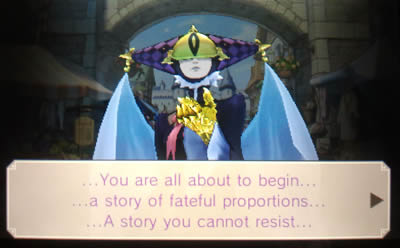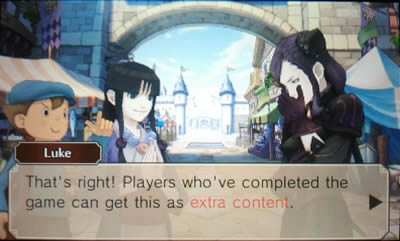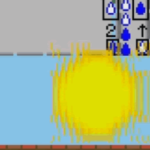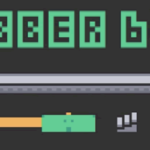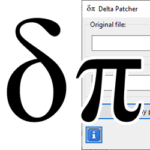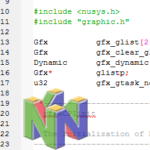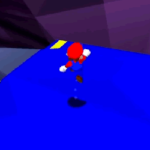Professor Layton vs Phoenix Wright Ace Attorney Review (3DS)

Phew, I just got through playing Professor Layton vs Phoenix Wright yesterday and wow, it’s been quite a journey. Before we get into the review, let’s go through some of the game’s stats, shall we?
Game stats
- Release date:
- Japan: 29 Nov 2012
- Europe/Australia: 28/29 Mar 2014
- North America: 29 Aug 2014
- Developed by: Level 5 & Capcom
- Published by: Level 5 & Nintendo
- Genre: Adventure, Puzzle
- Platform: Nintendo 3DS
- Time to complete: ~24 hours
Professor Layton vs Phoenix Wright Ace Attorney Review
To give you a little bit of background, I’ve played all of the Ace Attorney games (at least all the ones released in the west that I’m aware of), so I must say that I’m a big fan of the series. With regards to Professor Layton, I only ever played Curious Village beforehand. I thought that the game was pretty good, but I don’t think it’s worth getting every rendition of the series.
Now, in order to understand Layton vs Phoenix, you need to have a look at the gameplay of each series, as this game is a pastiche of the two styles.
The Ace Attorney series follows a pretty consistent formula: You’re a lawyer that whose client has been accused of murder (seriously, are there no other crimes in this world?) and it’s your duty to get them out of trouble. You read through long dialogues and present evidence at the correct times in order to acquit them. The structure of the game usually goes like this:
There are about 5 trials, the first one is a tutorial trial, there to show you the ropes. The middle ones are individual trials that span several days that alternate trial levels and investigation levels. The final trial then goes ahead and brings all of the past trials together in one epic climax.
On the other hand, the Professor Layton series plays like a story where you have touchscreen puzzles that you have to solve in order to progress. These puzzles are brain teasers that are sometimes relevant to their context (eg. a puzzle about cars will appear while driving), but often isn’t. This means that the game plays out like a point-and-click adventure game with puzzles spread throughout.
As you can tell, both they have quite a bit in common. Because of this, they blend together really well in Professor Layton vs Phoenix Wright. The issue I usually have with Ace Attorney games is that the investigation parts can get to be quite boring at times. They also have the problem that most point-and click adventures have: “Where the hell do I go now?”, there are times where you need to present an item to someone and it’s barely even hinted at. You only have to do it once or twice per game, so it’s not usually one of the options you attempt to exhaust when you’re blocked.
Layton, in contrast, has a much more interesting ‘investigation’ section because of all the puzzles it has spread throughout the game. However,the story has little to no place in the challenge of the game so it’s kind of pointless. Because of this, Layton vs Phoenix curbs the majority of the problems present in the individual series by letting phoenix take care of the court scenes while Layton investigates.
The story starts in London, where a girl called Espella come asking for help escaping from some witches. They manage to outwit them, but Espella ends up in court for theft and assault (Finally! A trial that isn’t murder!) and Phoenix gets her out of the situation. After Espella’s encounter with each of them, they both end up in a mysterious medieval town called Labyrinthia where witches and magic exist and Espella is accused of being one. The objective of the game is to unravel the mysteries behind Labyrinthia and the witches that dwell within.
That’s about all I can say without spoiling too much about the story.
With regards to Ace Attorney gameplay, Wright vs Layton does bring something new to the table. Each of the court cases in Labyrinthia has you cross-examine multiple people simultaneously. This offers a lot more interaction between the different witnesses and allows them to develop much further as well as the ability to question a different witness while you’re pressing on one of them. It’s a lot easier to explain in the game.
The problem with this is that it creates forks in the conversation where you have the option of talking to another witness. If the conversation leads to nowhere, you have to go back and listen to the whole conversation leading up to it all over again, which can get a bit tedious.
Another new gameplay mechanic (that is only used a couple of times in the game) is the ability to present another witness’s testimony as contradictory to a presented statement.
Post-game and DLC
Once you complete the game, you are given the ability to go through the anime cutscenes and some other little bits of media from the game. It’s okay, but since you already saw them in the game, they don’t really bring anything new to the table.
There is some free DLC that you can download as well. It consists of 7 chapters of dialogue between the main characters of the story as well as a bonus puzzle at the end of each one. Just be aware that it’s chock-full of in-jokes and fourth wall jokes. Since it’s bonus content and not part of the main game, it’s not too distracting to the immersion the game creates.

